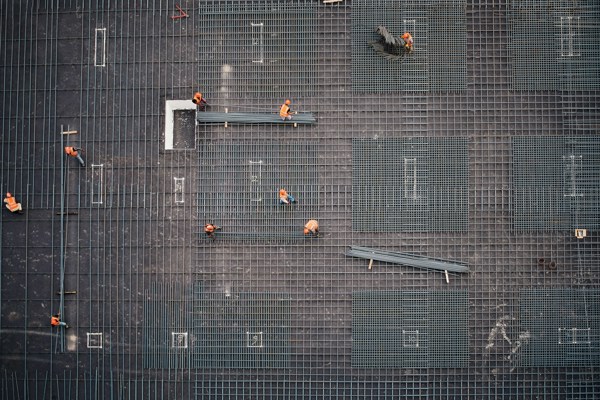The UK’s infrastructure sector is facing ongoing and increasing challenges due to global supply chain disruptions. Post-Brexit import costs, along with the impact of US tariffs on pricing worldwide, have only amplified the vulnerability of the UK’s construction industry to external factors.
As the UK embarks on major infrastructure projects, including new hospitals, roads and a new runway at Heathrow, ensuring a consistent and reliable domestic supply of materials, such as timber and steel, is becoming vital.
This urgency derives from the UK’s ongoing dependence on importing key materials. In 2024, steel imports rose by 13% compared to 2022, accounting for 68% of all steel used in the UK. When we dive deeper into the stats, alarmingly the UK is the second-largest importer of timber, with 73% of its timber supply coming from abroad.
However, post-Brexit challenges and global geopolitical events have shone a light on the vulnerabilities in this model. Rising shipping costs, tariffs and conflicts have led to inevitable price hikes, making it more difficult and expensive for UK contractors to obtain the necessary materials. Steel and timber are especially affected, with fluctuating prices and supply issues putting pressure on the sector.
The UK’s reliance on imported steel, often from Europe or further afield, exposes the sector to price fluctuations and supply disruptions. Similarly, timber imports from countries like Canada and the Scandinavian region have become less dependable, leading to delays in supply timelines.
New plans announced by the UK Government this March outline a roadmap to prioritise the use of domestic timber, particularly in housing construction. However, contractors across all areas of construction should take note, as the emphasis on sustainable, domestic materials is set to shape the wider industry.
Domestic material production presents an obvious solution to these issues. Increasing the availability of these materials within the UK, would reduce dependence on international supply chains, ensuring a more reliable and cost-effective source for construction projects.
Focusing on domestic production would not only provide a stable material supply but also stimulate the economy. This shift could foster the creation of new manufacturing facilities and production plants across the country, replacing the regular news stories of significant job losses as manufacturing operations are outsourced abroad. Of course, that is easier to say than to do, and the troubles of British Steel's Scunthorpe steel plant highlights the significant and fundamental difficulties in creating and sustaining such manufacturing capabilities in the UK.
As the UK plans significant infrastructure investments, it is crucial to reassess material sourcing strategies. Continuing to depend on imported steel and timber makes the sector vulnerable to global price fluctuations, delays, and potential project cancellations.
It may be that the recent UK-US trade deal reduces some of challenges of importing materials, but strengthening domestic production would not only reduce the risk of supply chain disruptions but also foster a more sustainable, self-reliant economy. While the removal of retaliatory tariffs on steel and aluminium in the UK–US trade deal offers a minor relief for UK infrastructure projects, it does not eliminate the ongoing pressure the construction industry faces from the disruption to the international supply chain.
A shift towards increased domestic production of steel and timber is critical to securing a robust, self-sufficient, UK infrastructure sector. With the potential for job creation, economic stimulation, and long-term resilience, it is time for policymakers, developers, and industry leaders to prioritise the development of a robust, sustainable domestic supply chain for these critical materials.
This article was featured in Construction News, read the original article here.


